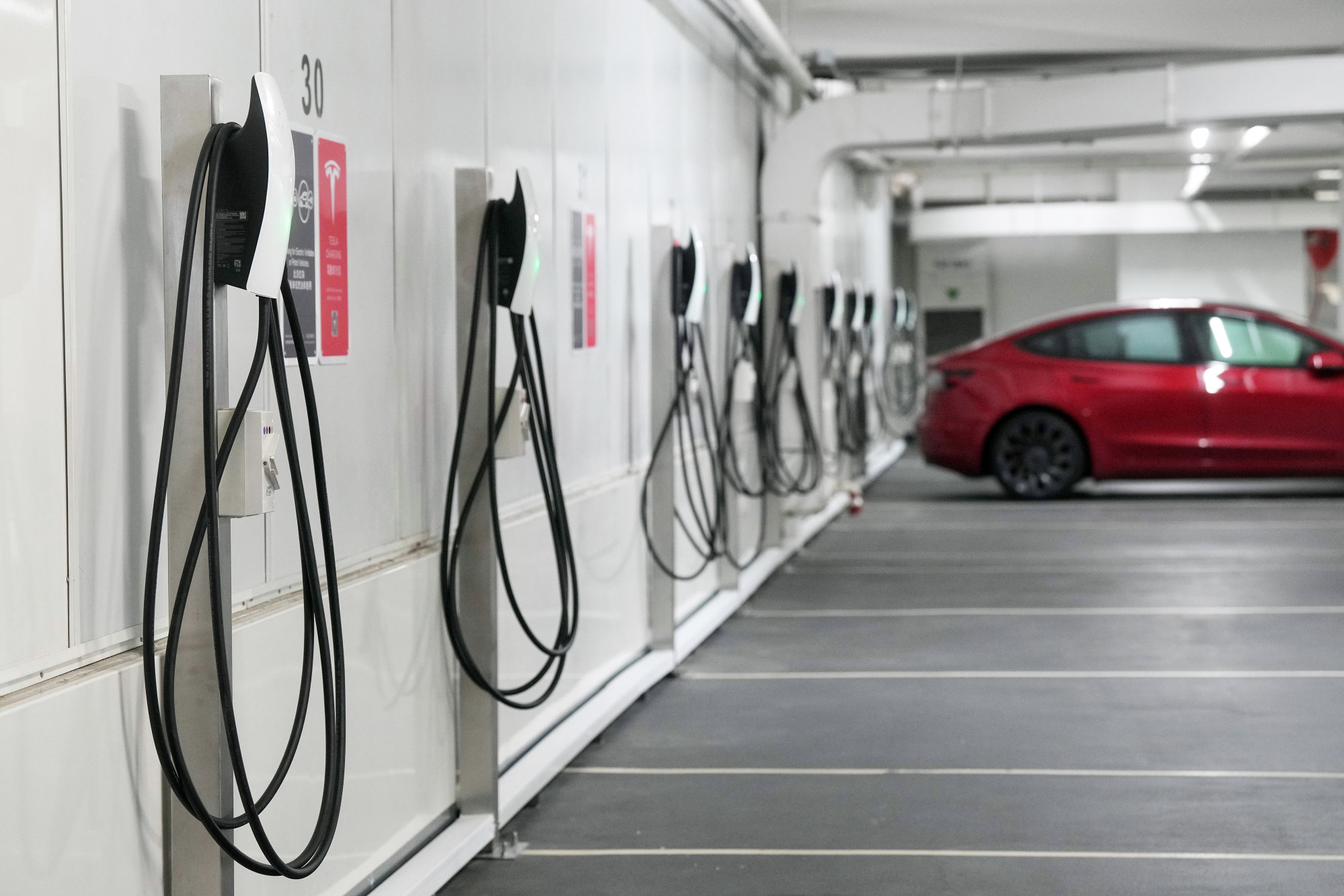Hong Kong’s EV population stood at 70,701 units at the end of October, representing about 7.7 per cent of the total number of vehicles, according to the Environmental Protection Department (EPD).

So far, 264 EV models from 16 jurisdictions have received approval to ply on Hong Kong’s roads, including 202 models for private cars and motorcycles, and others for public transport and commercial vehicles. These include vehicles from international carmakers like Audi, Nissan, Tesla, BMW and Mercedes-Benz, as well as those from Chinese EV manufacturers such as BYD, SAIC Maxus, and Great Wall Motor’s Ora.
Hong Kong government must lead charge to keep EV sales up: campaigners
Hong Kong government must lead charge to keep EV sales up: campaigners
And buyers are swarming to car showrooms, driven in part by the government’s incentives. Over 60 per cent of the 32,004 newly registered private cars in Hong Kong in the first nine months of 2023 were electric, with Tesla topping the charts with a 35 per cent share of the new EVs registered during the period, according to data from the Transport Department.
“Many buyers of EVs are driven by government policies,” said Calvin Ho, director of sales operations at Inchcape Greater China. “In addition to the government subsidies, the cost of ownership of an EV is also much lower than that of an internal combustion vehicle.”
Currently, buyers of electric private cars in Hong Kong can get a waiver of up to HK$97,500 when they register an EV for the first time. Car owners who choose to scrap and deregister their petrol-powered cars and replace them with an electric vehicles, are entitled to a higher tax break of up to HK$287,500 under a so-called “one-for-one replacement” scheme. Both incentives will run until March 31, 2024.
“The scheme has served as a driving force for the city’s wider adoption of EVs,” said Joseph Lau, the chairman of the Motor Traders Association of Hong Kong. “If the government scraps it or drastically reduces the tax waiver, it will dampen buyers’ desire for switching to EVs.”
The government is also supporting the roll-out of charging infrastructure. It introduced a HK$2 billion incentive scheme in 2020, which was subsequently enhanced by HK$1.5 billion, to subsidise the installation of charging infrastructure at 140,000 parking spaces in about 700 car parks at existing private residential buildings.
To promote the use of private EVs, the Hong Kong government aims to increase the number of public and private parking spaces with EV charging infrastructure to about 200,000 by mid-2027, the city’s chief executive John Lee Ka-chiu said in his October policy address.
As of the end of this September, there were 7,085 public EV chargers covering the 18 districts of Hong Kong, including 3,950 medium chargers and 1,092 quick chargers, according to the Transport Department.
EV owners can also use the “EV-Charging Easy” mobile app launched by EPD to locate the nearest public charging stations.
It will also progressively commercialise the EV charging services which are currently provided free of cost in government car parks, and allow operators to levy a fee on the users to increase market participation in this segment, according to the 2023 policy address.
Developing such infrastructure is critical to address the issue of range anxiety, which refers to the fear of running out of power on a journey before getting to the destination or before finding a charging point. It is also key to resolving charge anxiety, the feeling of uncertainty about whether a driver will be able to charge at a charging station.
“How to deal with the retired EV batteries – should it be the car owners who are responsible, or is it the car dealers’ responsibility to recycle? This is also a key question the consumers have in mind before they decide to purchase an EV,” said Ted Lau, managing director of Inchcape Greater China.

